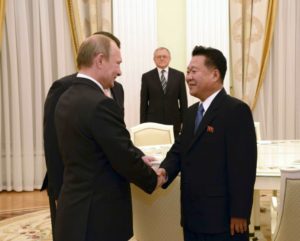Special to WorldTribune.com
 By Donald Kirk
By Donald Kirk
WASHINGTON – The U.S. refusal to veto the UN Security Council resolution attacking Israeli settlements in Palestinian territory as “a flagrant violation” of international law has triggered cries of outrage worthy of full-scale hostilities.
You might think, from the responses of Israeli Prime Minister Benjamin Netanyahu, that President Barack Obama had announced the U.S. had allied with the Palestinians in a declaration of war. In fact, the resolution is non-binding, and the U.S. remains Israel’s staunchest ally. Washington now provides $3.1 billion in aid for Israel every year and will soon be pumping in $3.8. billion annually under an agreement signed three months ago – stupendous figures for a country of 8.2 million people.

So really, nothing is changing, and Israel has nothing to worry about as far as U.S. support is concerned. Moreover, President-elect Donald Trump has signaled his dedication to Israel’s survival – and expansion – by promising after he takes office in three weeks to do whatever he can about Obama’s snub in the UN.
Trump’s view on U.S. abstention from the resolution, endorsed by all the other 14 members of the Security Council, suggests imminent change from what he sees as Obama’s weak and wavering policy. His gut response means he not only approves of Israel’s design for building on land claimed by Palestinians but will also be far more aggressive than Obama in combating the Islamic State of Iraq and the Levant and other terrorist groups.
The outlook for Trump’s foreign policy decisions, however, is laden with one huge paradox. How will he maintain his warm relations with Russia’s President Vladimir Putin while Putin is on good terms with countries seen as Israel’s real enemies, notably Iran and Syria? Netanyahu offended Obama by bypassing him and addressing the U.S. Congress in March of last year on the perils of any agreement with Iran on its nuclear program. The U.S. and other countries, including Russia, approved the agreement anyway.
Then there’s the matter of Russian support – actually, Russian and Iranian and Turkish support – of Syrian President Bashar Assad in his war against foes of his dictatorial regime.
The sight of the terrible suffering inflicted on Assad’s behalf by the Russian bombing of rebel forces, and civilians, in the city of Aleppo is engraved in the consciousness of anyone who watches television. Let us not forget that Israel in 2007 bombed a nuclear facility under construction in Syria. Netanyahu views Syria as just about as terrible as Iran – maybe worse considering the Syrian border with Israel on the Golan Heights. Israeli forces seized the Golan Heights in the 1967 war and drove out Syrian troops who had briefly overrun them in 1973.
The complexities of the Middle East struggle extend to Northeast Asia. North Koreans were constructing the nuclear facility in Syria in coordination with Iran, with which North Korea was exchanging nuclear technology. The reactor would have produced nuclear devices with highly enriched uranium of the sort that Iran has made ostensibly to produce energy, not warheads. The Israelis were not going to wait to see what the Syrian reactor was for. They made sure to destroy it first.
In the face of sanctions, North Korea has shipped missiles to both Syria and Iran while Putin, Trump’s friend, has made overtures to Pyongyang in a blatant attempt at competing with China for influence. While Russia and China have agreed to the latest UN resolution strengthening sanctions against North Korea as punishment for its nuclear and missile tests, it’s far from certain how interested they are in enforcing them. They would rather Kim Jong-Un not go through with ordering a sixth nuclear test, but they’re not likely to do anything to stop him.
Trump and his inexperienced foreign policy team will have to navigate through the shoals of swirling currents and stormy relationships that go far beyond anything the UN Security Council can do to resolve anything.
At odds with China’s expansionist ambitions in Asia, the Trump team has pledged to uphold historic U.S. alliances in Northeast Asia.
Hopefully Trump will be as dedicated to defending South Korea and Japan as he is to assuring the defense of Israel.
Donald Kirk has reported for decades on war and peace in the middle east as well as Asia. He’s at kirkdon4343@gmail.com.
